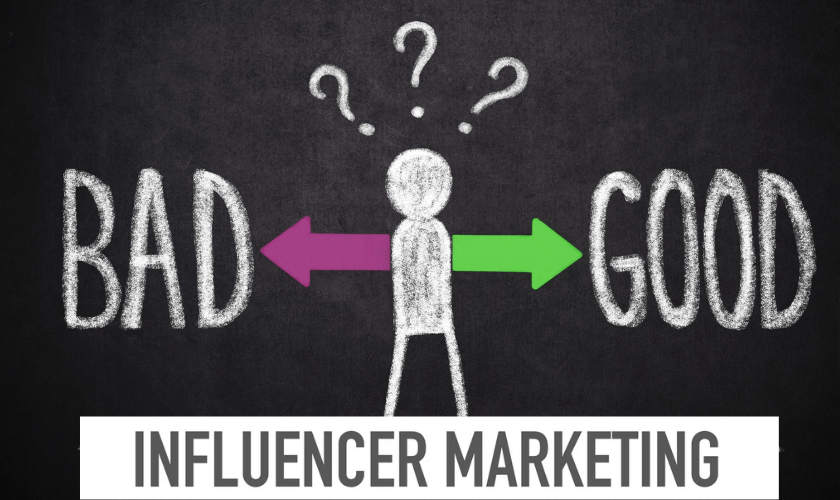
Is Influencer Marketing Good Or Bad?
Influencer marketing has become a cornerstone in modern advertising, leveraging the reach and trust of social media personalities to promote products and services. As with any marketing strategy, it presents a complex landscape of advantages and disadvantages, which brands must navigate carefully.
The Allure of Influence
Authentic Engagement
Influencer marketing thrives on the authentic connection between the influencer and their audience. This rapport can translate into genuine interest and trust in the products or services they endorse, providing a level of engagement that traditional advertising struggles to achieve.
Targeted Reach
Social media influencers often cater to niche markets, offering brands a direct line to specific demographics. This targeted approach can lead to higher conversion rates as the promotional content reaches those most likely to be interested in the product.
The Flipside of Fame
Oversaturation Risks
The increasing popularity of influencer marketing has led to an oversaturated market. Consumers are becoming more discerning, and there’s a risk of diminishing returns as audiences grow weary of constant endorsements.
Questionable ROI
The true return on investment (ROI) of influencer marketing campaigns can be difficult to measure. While some brands experience significant boosts in sales, others may find the results do not justify the costs involved.
Ethical Considerations
Transparency Issues
The Federal Trade Commission mandates clear disclosure when influencers are paid to promote products. However, not all influencers adhere strictly to these guidelines, leading to ethical concerns about transparency and consumer deception.
The Authenticity Debate
As influencer marketing grows more prevalent, the line between genuine recommendations and paid endorsements blurs. This can undermine the perceived authenticity that is crucial to an influencer’s appeal.
Making It Work for Your Brand
Strategic Selection
Choosing the right influencer is crucial. Brands must consider not only an influencer’s reach but also their relevance to the product and alignment with the brand’s values.
Performance Tracking
Implementing robust tracking methods is essential to determine an influencer campaign’s effectiveness. Brands should use specific metrics, such as engagement rates and conversion tracking, to assess performance accurately.
Harnessing Influencer Power Responsibly
As you weigh the pros and cons of influencer marketing for your brand, consider your objectives carefully. Are you looking for short-term buzz or long-term brand building? Select influencers who resonate with your brand ethos and can engage their audience in meaningful ways. Monitor campaigns closely, adapting strategies as needed to ensure a positive impact on your brand’s reputation and bottom line, Contact us.
Frequently Asked Questions (FAQs)
Q: How do I measure the success of an influencer marketing campaign?
A: Success can be measured through various metrics such as engagement rates, click-through rates, conversion rates, and overall sales figures. Setting clear KPIs before launching a campaign is crucial for accurate measurement.
Q: Can small businesses benefit from influencer marketing?
A: Yes, small businesses can benefit significantly from influencer marketing by partnering with micro-influencers who have a highly engaged but smaller audience that aligns with their niche market.
Q: How do I ensure an influencer is a good fit for my brand?
A: Research the influencer’s content, audience demographics, engagement levels, and values to ensure they align with your brand. It’s also important to consider their reputation and any previous partnerships they’ve had.
Q: Is influencer marketing suitable for all industries?
A: While influencer marketing can be effective across many industries, its suitability may vary depending on the nature of the product or service and the target audience. It’s essential to analyze whether the influencer’s audience matches your customer profile.
In conclusion, influencer marketing is neither inherently good nor bad; it is a tool with potential for great success when used thoughtfully and strategically. Brands must approach it with a clear understanding of their goals, the market dynamics, and ethical considerations to harness its full potential responsibly.
